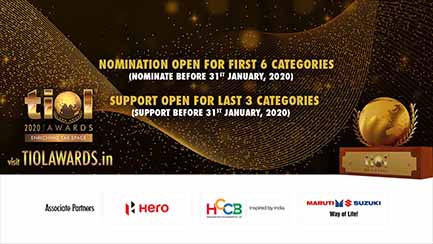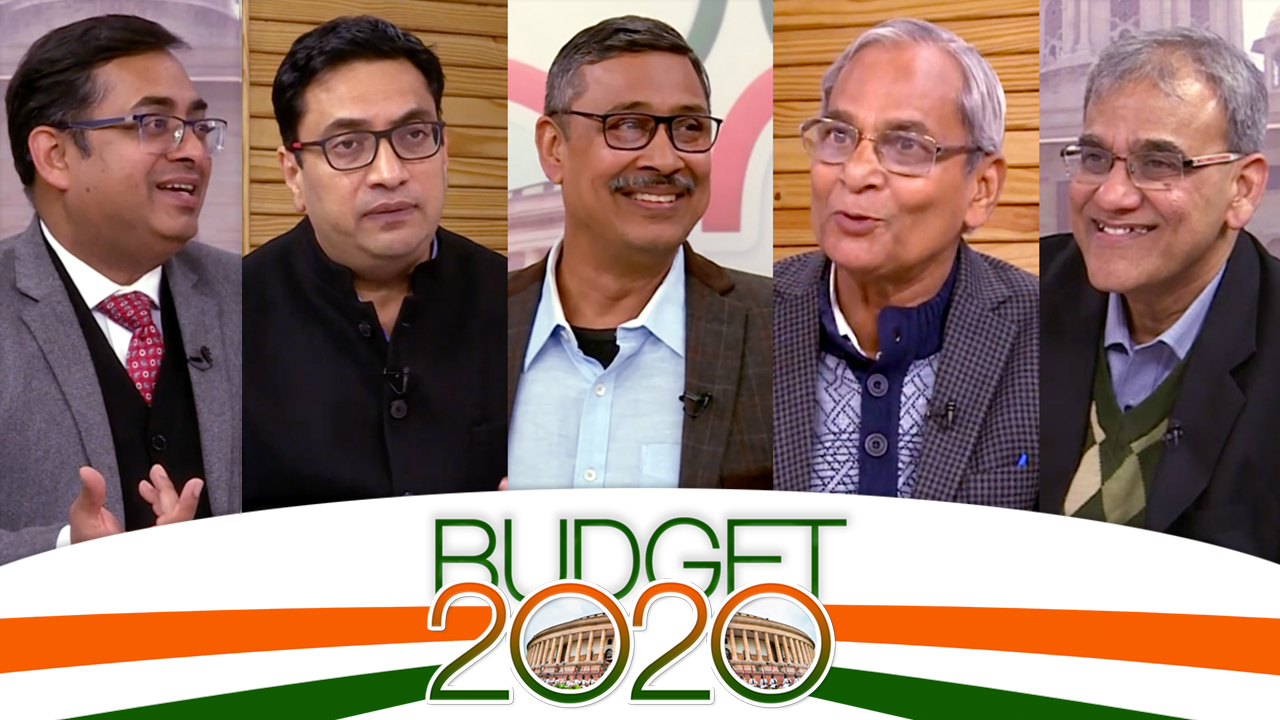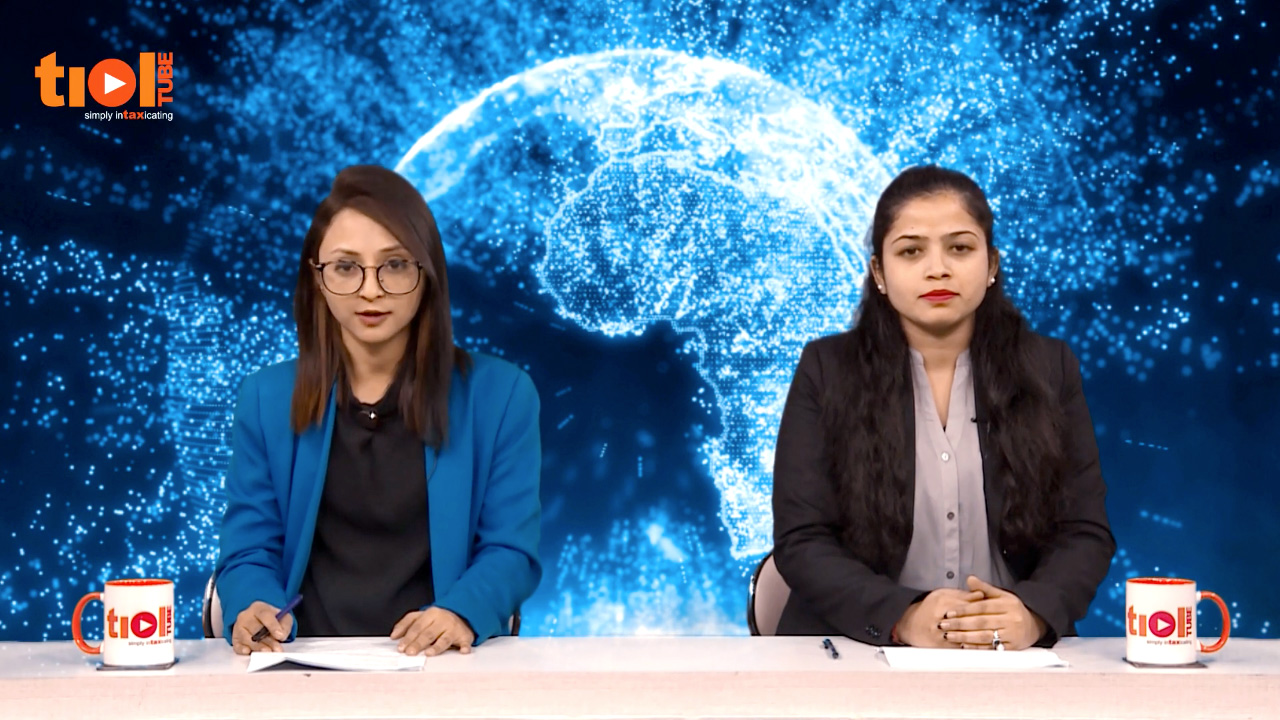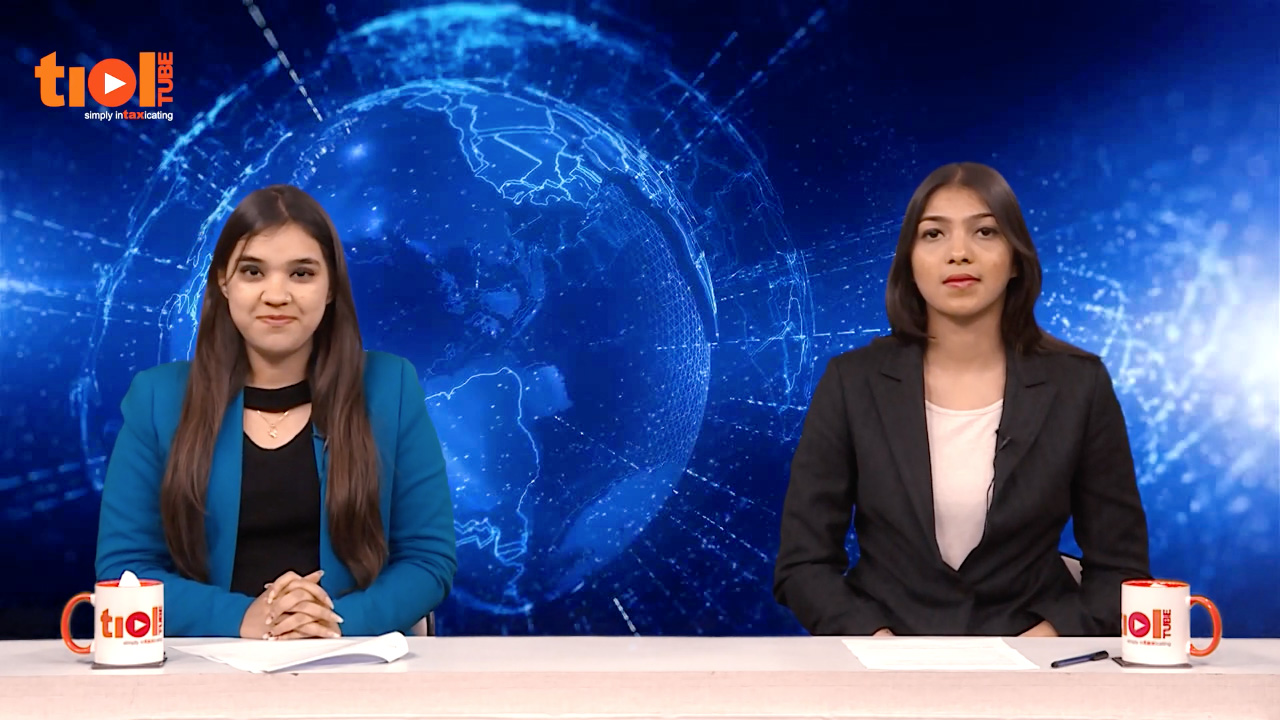|
SERVICE TAX
2020-TIOL-89-CESTAT-KOL Embee Software Pvt Ltd Vs CST
ST - During the relevant period, duty demand had been raised against the assessee during the relevant period, in respect of services provided by it to M/s BHEL - SCN was issued proposing to raise demand under Supply of Tangible Goods Service - On adjudication, the demands were dropped - The Revenue filed the present appeal claiming that the adjudicating authority did not properly scrutinize the documents, owing to which the dropping of demands raised was unsustainable - In defense, the assessee claimed that the services provided by it to M/s BHEL were not classifiable under SOTG, since effective control and possession of the equipment rested with M/s BHEL and were never transferred to the assessee.
Held - The adjudicating authority is found to have carefully examined relevant records and also to have verified the authenticity of the contents of the certificate issued by the CA's firm, when concluding that the service tax demand is not sustainable - Since the findings of the adjudicating authority are based on proper analysis and verification of documents, at this juncture, the arithmetical accuracy of the proposed demand of recovery cannot be re-appreciated - Hence the findings dropping the demand merit being sustained - Regarding the demand for denial of cenvat benefit and recovery of the same on the ground that the procedure laid down under Rule 4 (7) read with Rule 9 of the Cenvat Credit Rules, 2004 has not been observed or complied with by the assessee, the adjudicating authority has held that upon payment of the value of the taxable service and the service tax element thereon, the assessee had availed the cenvat credit - For recording of such observations, the adjudicating authority had referred to the sample copy of the invoices and also the Certificate furnished by the independent Practising Chartered Accountant - Since such observations recorded by the adjudicating authority were based on the available records, such findings cannot also be disturbed by taking a contrary view - Also considering the contract between the assessee & M/s BHEL, it is seen that the equipment are to be used for execution of assigned tasks, whilst their possession remained with M/s BHEL - Since effective control and possession were not transferred, the use of such equipment belonging to M/s BHEL cannot be taxed as SOTG - Hence the duty demand raised is unsustainable: CESTAT
-Assessee's appeal allowed : KOLKATA CESTAT
2020-TIOL-88-CESTAT-HYD Ineda Systems Pvt Ltd Vs CCT ST - The assessee-company is engaged in providing Information Technology Services and also exported the same - The assessee filed claim seeking refund of accumulated cenvat credit for three quarters - On adjudication, the original authority sanctioned the refund claim - On Revenue's appeal, in respect of one quarter, the Commr.(A) modified the amount refunded so as to deny refund claimed beyond the limitation period as per Notfn No 27/2012-CE(NT) - Refund in respect of the second quarter was denied entirely while refund in respect of a third quarter was allowed to the extent of that claimed within limitation as per the Notfn - Hence the present appeals. Held - The Notification requires that claims for refund be filed before one year from the date of receipt of payment in convertible foreign exchange in cases of export of service - In resepct of some invoices, the Commr.(A) found that the refund claim was filed beyond the period of one year from receipt of foreign exchange - The Chartered Accountant representing the assessee was unable to refute such findings with any evidence - Hence the Commr.(A) correctly modified the order of the original authority, by only denying refund of cenvat credit to the extent that the claims were filed after one year from date of realisation of foreign exchange - Such O-i-A warrants no interference with: CESTAT
- Assessee's appeals dismissed : HYDERABAD CESTAT
CENTRAL EXCISE
CX - The assessee-company is a manufacturer of pharmaceuticals - It availed cenvat credit in respect of inputs - During the relevant period, three SCNs were issued proposing duty demand u/r 6(3) of the CCR along with interest and also proposing to impose penalty - Before this Tribunal, the issues involved are as to whether the assessee is liable to reverse credit u/r 6(3) where the assessee cleared inputs as such for sale and also reversed cenvat credit on such inputs u/r 3(5) of CCR 2004 - Another issue is as to whether the assessee is liable to pay an amount u/r 6(3)(1) where it reversed proportional credit on inputs used in manufacture of exempted products & whether interest can be levied and penalties be imposed.
Held - The Rule 3(5) of CCR 2004 does not make a distinction based on the purpose for which the inputs are removed as such - As to whether the inputs are removed as such for sale or otherwise makes no difference to the applicability of Rule 3(5) - Trading is an exempted service covered under Rule 6(3) - However, having reversed an amount under Rule 3(5) of CCR 2004, the appellant will not be covered by Rule 6(3) because the credit attributable to the inputs removed as such, has already been reversed - Hence the demand raised on this account merits being quashed: CESTAT
Held - Rule 6(2) provides the assessee an option to maintain separate accounts for receipt consumption, inventory of inputs used in relation to manufacture of exempted goods and dutiable goods and take Cenvat Credit only on inputs used in manufacture of dutiable goods - A plain reading of Rule 6(2) does not require separate stocks of inputs to be maintained - It also does not require that the inputs should be bought under different invoices - What is required is maintenance of separate accounts - The assessee in this case reversed the proportionate amount of credit as per the standard formula & has in effect, maintained such accounts - The assessee also revealed how it calculated the amounts reversed - These figures can be verified by the original authority to ensure that the appellant has indeed, reversed the amount of CENVAT Credit attributable to the inputs used in the manufacture of final products - Hence the matter is remanded to such end - If they have done so, the demand, interest and penalties are not sustainable: CESTAT
- Assessee's appeal partly allowed : HYDERABAD CESTAT
2020-TIOL-86-CESTAT-MUM
CX-(i) Whether the benefit of exemption under Notification No 6/2000-CE dated 1.3.2000 is admissible to the appellant post 26.4.2000 (ii) Valuation of the goods cleared by the appellant (iii) Whether appellants have mis-declared, mis-stated to wrongly avail the benefit of exemption notification (iv) Whether interest on the demand made can be sustained (v) Whether penalties are imposable on appellant (vi) Whether penalties are imposable on four functionaries in the unit
Held: - Whether the benefit of exemption under Notification No 6/2000-CE dated 1.3.2000 is admissible to the appellant post 26.4.2000, the date from which they obtained two Central Excise Registrations by bifurcating their existing facility into two units
Plain reading of the S No 114 in the above notification, will show that the exemption under the said entry is available, only to independent texturizer who does not have the facilities in his factory (including plant and equipment) for producing partially oriented yarn (POY) of polyesters falling under SH No. 5402.42 - the word independent texturizer has not been defined in the said notification -as per the appellants, because the registrant who has claimed the benefit of the exemption do not have facility in the same factory to produce the Partially Oriented Yarn, he will qualify as an independent texturizer for the purpose of said notification -the entire case of the appellant hinges around the interpretation of the phrase "independent texturizer who does not have the facilities in his factory (including plant and equipment) for producing partially oriented yarn (POY) of polyesters" -appellants have heavily relied on the decision of the Apex Court in the case of Rollatainers Ltd. - 2004-TIOL-67-SC-CX to argue that after bifurcation and grant of two separate registrations, both KSF (PYU) and KSF (POY) are two separate factories, and hence they should be considered independent of each other -thus the KSF (PYU) being independent texturizer, having no facility to manufacture partially oriented yarn in its factory, is eligible for the exemption available under the notification -they also rely on the decision of Tribunal in their own case wherein, Tribunal has upheld the order of Commissioner (Appeal) setting aside the order of Deputy Commissioner revoking the twin registrations granted to them -they state that in view of the said decision, the issue is no longer res-integra and should be decided following that order -from the entire order of Tribunal, it is evident that the issue for consideration before the Tribunal in that decision was not the admissibility of the exemption claimed under notification No 6/2000-CE, but was limited to grant of twin registration to the bifurcated premises -the issue of admissibility to notification, if not examined by the Tribunal in that decision, then it cannot be an authority on that issue -as per the ratio laid down by the decision of the Tribunal in the case of Dhampur Sugar Mills - 2002-TIOL-476-CESTAT-DEL [which has been affirmed by the Apex Court - 2007 (216) ELT A23 (SC)], the concept of factory under Central Excise has been delinked from the Registration granted -the case of Rollatainers Ltd. is distinguishable on more than one count from the case of Dhampur Sugar and the facts in present case -the interdependence of the two units as the entire raw material i.e. POY for KSF (PYU) was being supplied from KSF (POY), completely distinguishes the present case from that of Rollatainers -the facts of case are more akin to the case of Grauer and Weil - 2002-TIOL-557-SC-CX and applying the ratio of the said decision, though there are two registrations, the factory continue to remain one -the same view has been expressed by the Bombay High Court in the case ofSwadeshi Dyeing and Bleaching Mills (P) Ltd. [1989 (41) ELT 224 (Bom)] and the Tribunal in the case of Mukerian Papers Ltd. - 2014-TIOL-807-CESTAT-DEL -now coming to the phrase "independent texturizer" used in the Notification No 6/2000-CE, independent texturizer, is a person (legal or natural) who procures the partially oriented yarn from the open market and then clears the texturized yarn after texturizing the same -undisputedly, KSF(PUY) and KSF (POY) are having common sales tax registration and PAN and are proprietorship concerns of M/s CEL, before and after bifurcation -if the texturizer is procuring the "partially oriented yarn" from any of his factory then he will not qualify to be an "independent texturizer" -thus the benefit of exemption cannot be admissible to him - the principle of strict construction of an exemption notification has been time and again been emphasized by the Hon'ble Apex Court -in view of the above, the benefit of the exemption notification 6/2000-CE and its successor notification will not be admissible to the appellants [para 5.3.2, 5.3.3, 5.3.4, 5.3.5, 5.3.7, 5.3.8, 5.3.9]
Valuation of the goods cleared by the appellant
Appellant have in their appeal and during the course of argument challenged the valuation adopted by the Commissioner, for determining the duty short paid by them -the Bench is not in agreement with the approach made by the Commissioner in rejecting the deductions claimed by the appellants for determining the assessable value from the sale value at depot - Commissioner should have considered and allowed the admissible deductions from the sale value for determination of assessable value -while doing so, Commissioner should have taken into account the order of the Apex Court in case of Bombay Tyre International - 2002-TIOL-374-SC-CX-LB and Madras Rubber Factory - 2002-TIOL-49-SC-CX-LB and other decisions of Apex Courts on the subject, and affirmed in case of Purolator India Ltd. - 2015-TIOL-193-SC-CX -hence, for the determination of the correct assessable value and the quantum of duty short paid or evaded, the matter needs to be remanded back to the Commissioner[para 5.4.1, 5.4.2, 5.4.3]
Whether appellants have mis-declared, mis-stated to wrongly avail the benefit of exemption notification
By bifurcating the existing unit, to claim the benefit of exemption notification, appellant have created a colorable instrument, a façade to evade the payment of legitimate central excise duty -in the case of McDowell & Company Ltd. - 2002-TIOL-40-SC-CT-CB a five member bench of Supreme Court has unequivocally discouraged the use of such colorable instruments for the purpose of tax evasion -the contents of letter filed for seeking twin registration, and as recorded in the Tribunal Order as reported in case of G S Singhvi [2004 (171) ELT 494 (T-Mum)], are self explanatory and clearly show that appellants have in garb of the "product management", sought to create a colorable instrument a façade in name of product management group for evading the payment of legitimate duty due -the intention of the appellant is also clear from the fact that they had been selling the said goods from their depots by charging the duty @ 36.8% ad valorem instead of the duty actually paid by them after bifurcation -they never declared the pricing mechanism to the department at the depot at the time of seeking an amendment in registration hence they had misstated the facts with the intention to evade payment of duty and hence extended period of limitation has been correctly invoked against the appellants in the present order [para 5.5.1, 5.5.2, 5.5.3, 5.5.4]
Whether interest on the demand made can be sustained
Since the Bench has held in the favour of demand of duty, the demand of interest will follow as has been held by the Bombay High Court in the case of P.V.Vikhe Patil SSK - 2007-TIOL-419-HC-MUM-CX - similar views have been expressed in various decisions of the Tribunal [para 5.6.1, 5.6.2]
Whether penalties are imposable on appellant
The Bench has held that appellants have by way of omission and commission, contravened the provisions of Central Excise Act, 1944 and the Rules made thereunder with the intention to evade payment of duty -in view of the decision of the Supreme Court in the cases of Rajasthan Spinning and Weaving Mills - 2009-TIOL-63-SC-CX the order of the Commissioner is upheld to the extent of imposing penalties under Rule 173Q of the Central Excise Rules, 1944 or Rule 25 of the Central Excise Rules, 2002, as the case may be, read with Section 11AC of the Central Excise Act, 1944 -however, the quantum of penalty needs to be re-determined after determination of actual duty evaded by the appellants [para 5.7.1, 5.6.3]
Whether penalties are imposable on four functionaries in the unit
In view of the specific finding recorded by the Commissioner, to the effect that the four functionaries were instrumental and in knowledge of the entire façade being created to evade payment of duty, the penalties imposed on these functionaries is upheld - however, the quantum of penalty needs to be re-determined after ascertaining the duty evaded [para 5.8.2]
CENVAT/MODVAT Credit
Appellants have, in their submissions, stated that for claiming the exemption under Notification 6/2000-CE and its successor notifications they had not availed the benefit of CENVAT/MODVAT credit in respect of the inputs received by them as per the condition specified for availing the exemption -if the benefit under that notification is not admissible to them then they should be allowed the benefit of CENVAT credit of duty paid on the inputs -the Bench has no hesitation in holding that the benefit of CENVAT/MODVAT credit in respect of the duty paid on the inputs used by them in manufacture of finished goods was admissible to them if they had not cleared the goods by availing the benefit of exemption under Notification No 6/2000-CE and its successor notifications -however, the benefit of CENVAT/MODVAT credit can be allowed only on establishing the claim to such credit by way of production of requisite documents before the adjudicating authority -since the matter is being remanded for re-determination of the value and quantum of duty short paid by the appellants, appellants may make the claim towards admissible CENVAT/MODVAT credit before the adjudicating authority in remand proceedings, who will consider the claim and allow the admissible CENVAT/MODVAT credit [para 5.9.1, 5.9.2, 5.9.3] Appeal No E/86129, 86130, 86131, 86132, 86153, 86154, 86155, 86156 & 86157/2014 are partially allowed and the matter remanded back to the adjudicating authority for redetermination of assessable value, admissibility of MODVAT/CENVAT credit, quantum of duty evaded and imposition of penalty consequent to the redetermination of the duty evaded [para 6.1]
- Appeals disposed of: MUMBAI CESTAT
CUSTOMS
Cus - Customs Brokers Licencing Regulations, 2013/2018-In a case of undervaluation in import of electronic goods, the licence of the appellant [a Customs Broker] was revoked under regulation 14, read with regulation 17(7) of Customs Brokers Licencing Regulations, 2018 besides forfeiting the entire security deposit - appeal to CESTAT.
Held: Penalty of revocation imposed against the appellant is disproportionately harsh in the context of the alleged quantum of undervaluation - the delay on the part of the licensing authority in proceeding against the licensee for more than 10 years and, that too, for this minor dereliction, if any, does not appear warranted - the allegation against the importer was that of undervaluation - there is no allegation of the appellant having been involved in the process of negotiations, or dealings, with the shipper - a custom broker deals with the cargo intended for presentment and with the documents required for clearance - it is virtually impossible to deduce undervaluation from either the physical verification or documentary scrutiny implicit in this role and the difference between the declared value and the finally assessed value is barely 15% - it is, therefore, not determinable that the appellant had failed to advice the client to comply with the provisions of Customs Act, 1962 - there is no evidence, except the statement said to have been recorded from a former Director of the appellant-company, that the antecedents were not verified - there is no evidence on record that such obligation had not been undertaken by an employee of the licensee - the Bench gathers strength for this proposition from the non-issue of notice under Customs Act, 1962 to the Customs Broker or to the Director - therefore, the role of the appellant in the alleged undervaluation is not evident - in these circumstances, the findings of the enquiry officer do not appear to have any basis - the conclusion arrived at by the licensing authority that verification of antecedents would have led to detection of the undervaluation does not appear to be founded on logic - reliance placed by the appellant on the decision of the High Court of Delhi in the case of Kunal Travels (Cargo) - 2017-TIOL-894-HC-DEL-CUS would appear to fit the facts of the present dispute -for the above reasons, the impugned order must be set aside and the appeal allowed : CESTAT [para 5, 6, 7]
- Appeal allowed: MUMBAI CESTAT | |









